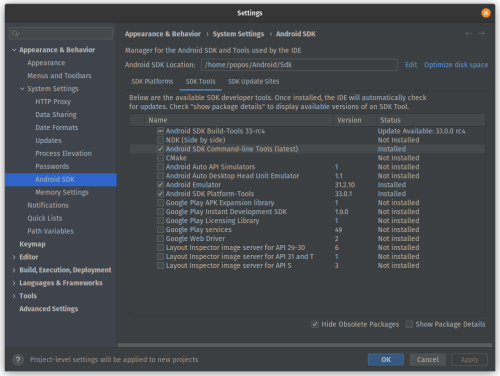This came across my radar entirely by accident. Someone or a group of someones out there has added Python wrappers around Google’s Flutter ( https://flutter.dev ) and called it flet ( https://flet.dev ). If you have Flutter installed already (and I have version 3.3.10, which is current) you can install the Python Flutter module with pip install flet, and then start writing desktop applications with it. I came across this application example here: https://betterprogramming.pub/building-a-markdown-editor-previewer-with-flet-7d9b06d6dc4b . I typed it all in myself, and here is my copy of the original author’s listing.
#!/usr/bin/env pythonimport fletdef main(page: flet.Page):page.title = "Markdown Editor"page.theme_mode = "dark"def update_preview(event):markdown.value = text_field.valuepage.update()page.appbar = flet.AppBar(title = flet.Text("Markdown Editor", color=flet.colors.WHITE),center_title = True,bgcolor = flet.colors.BLUE,)text_field = flet.TextField(value = "# Hello from Markdown",multiline = True,expand = True,height = page.window_height,border_color = flet.colors.TRANSPARENT,on_change = update_preview)markdown = flet.Markdown(value = text_field.value,selectable = True,extension_set = "gitHubWeb", on_tap_link = lambda event: page.launch_url(event.data),)page.add(flet.Row(controls=[text_field,flet.VerticalDivider(color=flet.colors.RED),flet.Container(flet.Column([markdown], scroll = "hidden",),expand = True,alignment = flet.alignment.top_left,)],expand = True,))flet.app(target = main)For testing purposes I used this page for the examples on the left of the application: https://www.markdownguide.org/cheat-sheet/ . Although the author called this an editor, it’s missing quite a bit of functionality, such as the ability to open and save your work. Right now it’s just a proof of concept that shows how easy it is to write GUI applications in Python and Flutter, and a way to exercise flet’s built-in Markdown module (see lines 28 to 33). The only problem so far is that Flutter is spitting out a warning message when the Markdown demo application is closed, but other than that it appears to be a decent little demo.
Will I add more functionality? Who can say? Right now I’m working with Qt 6.2 and C++, but the fact this is written with Python is a very strong draw to me. I do think this is very cool.




You must be logged in to post a comment.